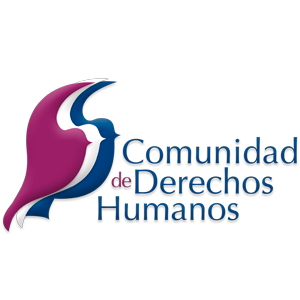Monitoreo EPU
Chile
El Consenso de Montevideo (CM), es el acuerdo intergubernamental más importante de la región en materia de población y desarrollo, para el seguimiento al Programa de Acción de El Cairo después de 2014. Es un instrumento que incorpora elementos trascedentes para la implementación de políticas que garanticen el pleno ejercicio de los derechos humanos en temáticas tan relevantes como la salud sexual y reproductiva y otras. Es complementario a la Agenda 2030 para el Desarrollo Sostenible, e incluye más de 120 medidas sobre nueve temas identificados como prioritarios.
Relación con el Consenso de Montevideo
| CM 33 | Promote, protect and guarantee sexual health and rights and reproductive rights to contribute to the full realization of individuals and social justice in a society free from all forms of discrimination and violence |
|---|---|
| CM 34 | Promote policies that help ensure that people exercise their sexual rights, including the right to full sexuality in safe conditions, as well as the right to make free, informed, voluntary and responsible decisions about their sexuality, with respect for their sexual orientation and gender identity, without coercion, discrimination or violence, and guarantee the right to information and the means necessary for their sexual and reproductive health |
| CM 36 | Develop policies and programs to eradicate discrimination based on sexual orientation and gender identity in the exercise of sexual rights and their manifestation |
| CM 37 | Ensure universal access to quality sexual and reproductive health services, taking into account the specific needs of men and women, adolescents and young people, LGBT persons, older persons and persons with disabilities, paying particular attention to vulnerable persons and persons living in rural and remote areas and promoting citizen participation in the follow-up to commitments |
| CM 38 | Promote prevention and timely detection and ensure universal access to comprehensive treatment of HIV/AIDS and sexually transmitted infections, and eliminate stigma and discrimination often faced by people living with the virus |
| CM 39 | Strengthen measures to detect HIV/AIDS and other sexually transmitted infections in pregnant women and to prevent vertical transmission of the virus |
| CM 47 | Fulfill the commitment to strengthen institutional mechanisms for the construction of development policies with equality that guarantee women's autonomy and gender equality, providing them with autonomy and human and financial resources that allow them to have a cross-cutting impact on the structure of the State, recognizing their strategic role and raising them to the highest level |
| CM 50 | To fulfill the commitment to promote and ensure the application of the gender perspective and its intersection with race, ethnicity, age, social class and disability status in all public policies, especially those of an economic and cultural nature, and the coordination between the State authorities and social actors, organizations of women of African descent, indigenous and young people to ensure gender equality |
| CM 52 | Adoptar medidas legislativas y reformas institucionales para prevenir, sancionar y erradicar el acoso político y administrativo contra las mujeres que acceden a puestos de decisión por vía electoral o por designación, tanto en el nivel nacional como local, así como en los partidos y movimientos políticos |
| CM 56 | Establish mechanisms to prevent, file complaints and sanction sexual and labor harassment and harassment practices, as well as other forms of harassment and violence against women and men, especially in the workplace and education |
| CM 57 | Implement the policies adopted and take preventive, penal, protection and care measures that contribute to the eradication of all forms of violence, including forced sterilization, and stigmatization of women and girls in public and private spaces, including gender-based violent killings of girls and women, ensuring effective and universal access to basic services for all victims and survivors of gender-based violence and paying special attention to women in higher-risk situations, such as older women, pregnant women, women with disabilities, culturally diverse groups, sex workers, living with HIV/AIDS, lesbian, bisexual, transgender, Afro-descendant, indigenous, migrant women residing in border areas, asylum-seekers and refugees trafficking, among others |
| CM 58 | To reaffirm the commitment and political will of Latin America and the Caribbean, at the highest level, to combat and eliminate all forms of discrimination and violence against women, including domestic violence, femicide/femicide, and to actively promote awareness of the implementation of the gender perspective among justice practitioners |
| CM 60 | Develop and strengthen plans and programs aimed at reducing disparities in the representation and performance of children and young people in the educational system, with particular reference to the English-speaking Caribbean |
| CM 33 | CM 34 | CM 36 | CM 37 | CM 38 | CM 39 | CM 47 | CM 50 | CM 52 | CM 56 | CM 57 | CM 58 | CM 60 | |
|---|---|---|---|---|---|---|---|---|---|---|---|---|---|
| Acceso a Servicios de Salud Sexual y Reproductiva | 0 | 0 | 0 | 1 | 1 | 1 | 0 | 0 | 0 | 0 | 0 | 0 | 0 |
| Violencia Contra las Mujeres | 1 | 1 | 0 | 0 | 0 | 0 | 0 | 0 | 1 | 8 | 12 | 8 | 0 |
| Educación Sexual Integral | 0 | 0 | 1 | 0 | 0 | 0 | 1 | 1 | 0 | 0 | 0 | 0 | 1 |
| Salud Materna | 0 | 0 | 0 | 0 | 0 | 0 | 0 | 0 | 0 | 0 | 0 | 0 | 0 |
| Aborto | 0 | 0 | 0 | 0 | 0 | 0 | 0 | 0 | 0 | 0 | 0 | 0 | 0 |
| LGBTI | 2 | 4 | 2 | 2 | 0 | 0 | 0 | 0 | 0 | 0 | 0 | 0 | 0 |
| 3 | 5 | 3 | 3 | 1 | 1 | 1 | 1 | 1 | 8 | 12 | 8 | 1 |
3er Ciclo
Seleccione una opción




